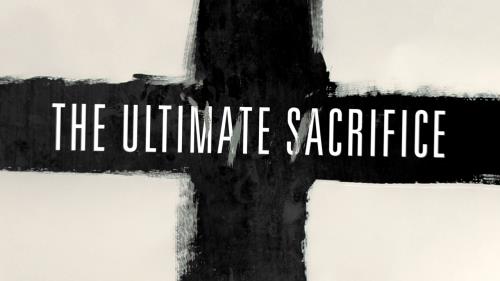-
When Bad News Becomes Good News
Contributed by Michael Duduit on Nov 28, 2017 (message contributor)
Summary: Palm Sunday is a good news/bad news kind of day. It is a day of celebration, as the people come out from Jerusalem to give Jesus a royal welcome.
You are invited to attend the National Conference on Preaching. To learn more: Visit: http://www.preaching.com/events/ncp/
--------
Did you hear about the pastor who had been sick? Somebody visited him with a message. They said, “Pastor, the good news is the deacons just voted to pray for your speedy recovery. The bad news is, the vote was 12 to 9.”
Palm Sunday is a good news/bad news kind of day. It is a day of celebration, as the people come out from Jerusalem to give Jesus a royal welcome. Yet there is already bad news present, as the religious establishment makes its plans to get rid of this itinerant preacher who threatens their comfortable identities. The good news of Sunday’s hosannas would become the bad news of Friday’s “Crucify Him!”
We see how it all begins in John 12:12-19.
Thus began the most important week in human history. Much as a door swings back and forth on its hinges, so this remarkable week became the hinge on which history swings.
The pivotal events that would make such an impact on our lives actually began a few days before Sunday, as Jesus was making His way to Jerusalem. Along the way, He received urgent word from Bethany; his dear friend, Lazarus, was dying. Could he come quickly and do something?
It’s the kind of announcement we all receive at some time in our lives. Someone we love may not be here much longer; come quickly. I still remember receiving word that a friend and former co-worker had been diagnosed with cancer. I knew I needed to call, and planned to do so. Yet somehow time got away, and I knew I needed to make contact soon – but before I did, the call came, all too soon, that she was already gone. Hesitation and delay have a way of creating regrets, don’t they?
Now Jesus has received word that Lazarus is ill unto death – come soon. (11:3-6) Sure enough, when Jesus and His companions finally arrive, they get the bad news: Lazarus is already dead and in the grave four days. The mourners were still in place, weeping and lamenting the passing of this good man. In frustration, Martha said, “Lord, if you had been here, my brother would not have died.” (11:21)
Have you ever felt that way: Where were you, God? If only you had been here; if only you had acted. Where were you when our child died? Where were you when my marriage came apart? Where were you when the doctor said it was cancer? Where were you, God? We’ve all had moments when we asked those kinds of questions out of the hurt and anger of a breaking heart.
Yet even with Lazarus gone, his sister Martha knew that somehow Jesus could turn their bad news into good news. She said: “But I know that even now God will give you whatever you ask." (11:22) Even as she unloaded her hurt on Jesus, she knew that Jesus would always have the last word. Though we feel the pain of sorrow, of loss, don’t forget that grief is never the last word. Bad news can somehow become good news in God’s hands.
So we come to one of the most remarkable scenes in the gospels, a scene that combines the tender humanity of Jesus with His awesome power, as he turns tragedy into celebration. Listen to how John describes it: (11:32-46)
When it says in verse 33 that Jesus was “deeply moved,” it means more than that he was sympathetic. The word that is used is an ancient Greek term that describes a horse snorting. What it tells us is that Jesus so shared in their sorrow that he let out an involuntary gasp. He really did feel their pain with all that He was. And He wept.
When we are in pain, it helps to know that Jesus weeps with us. He is not a distant deity, aloof and apart from our burdens. He will not always step in when we want or solve our problem as we want Him to, yet even when we must go through difficulty, God shares in our sorrows.
Jesus stands at the entrance to the tomb, and a miracle takes place. He calls Lazarus from death into life. The pain of Mary and Martha is instantly swept away and replaced with joy. The mourners’ weeping is turned into dancing. Grief is replaced with hope.
It doesn’t happen that way every time, though, does it? If you’ve stood by the graveside of a spouse or a child, by the hospital bed of a loved one, you know that sometimes the grief doesn’t pass away so quickly. And yet, the truth of what Jesus did at the tomb of Lazarus is a truth that makes all the difference for us in times of sorrow and loss: death is not the last word. The One who called Lazarus forth with a word is the same One who holds our lives and our futures – in life or in death, in comfort or in pain. Our hope does not lie in the good news or bad news of circumstances; our hope is in Him.

 Sermon Central
Sermon Central



